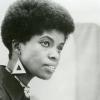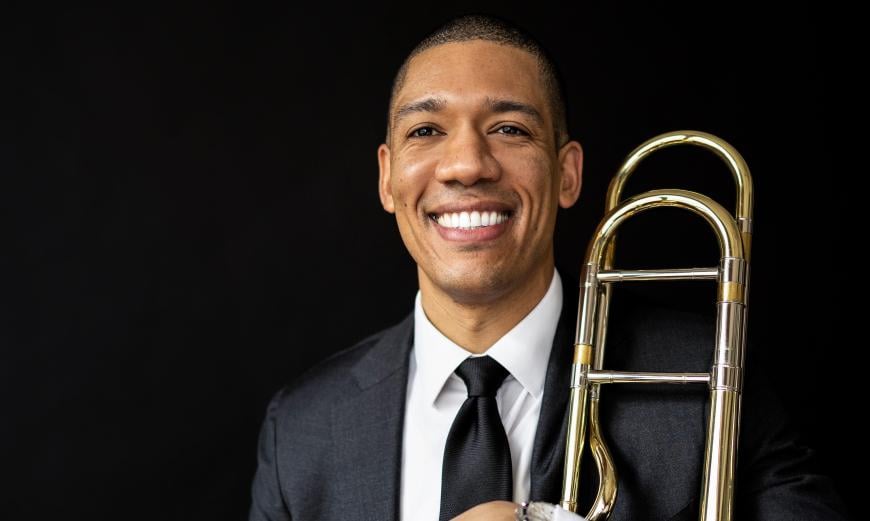
When trombonist Weston Sprott joined the Metropolitan Opera Orchestra in 2005, he was one of the only Black members of that prestigious ensemble. Today, after years of personal advocacy and a society-wide racial reckoning, he can still count his Black colleagues on two fingers.
So, in terms of diversity at his own workplace, he hasn’t seen a lot of progress over the past 18 years. “None, actually,” he said. “Zero.”
Sprott speaks with quiet determination rather than righteous anger. But his cool demeanor should not be confused with any reticence to talk bluntly about why there are so few Black musicians in American orchestras. As he and three colleagues wrote in a letter to The New York Times in 2020: “The reason there aren’t more Black artists in orchestras isn’t blind auditions. The reason is racism.”
“The institutions we work in don’t exist in bubbles,” Sprott said in a recent interview on the campus of the Music Academy in Santa Barbara, where he spent much of this past summer teaching. “[Racism] exists within every organization, but the mix is different.”
So, is the primary problem overt racism? Unconscious racism? Structural racism?
“All of the above,” he said. “Sometimes it’s one or the other; sometimes it’s a combination of those things.
“At the end of the day, whether you’re working in an orchestra or a hospital or a government institution, people are people. The various dynamics you see in the world also exist in those places. We’re not immune from that because we’re classical musicians.”
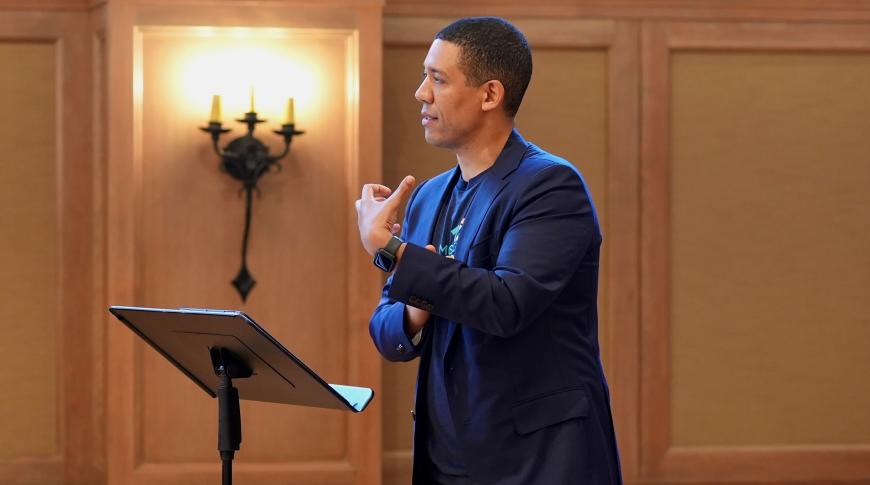
Sprott, 40, refers to himself as a “generally optimistic person,” and that comes across in conversation. He loves his work, and he loves talking about his work. But he is also outspoken about what he argues is a decidedly unlevel playing field for Black musicians in American orchestras, and he is doing what he can to correct that imbalance. He spoke about his life, his advocacy, and his approach to music in an interview that has been edited for clarity and concision.
In your view, why hasn’t there been more progress in terms of diversifying orchestras? There are more youth ensembles than ever before serving diverse communities, such as Youth Orchestra Los Angeles.
When you look at youth ensembles, what you generally see is the percentage of historically marginalized people is highest in the younger groups, then decreases bit by bit as you go up the age range. Why is that? It’s not because they’re not as talented or hardworking. It’s because the water we’re all swimming in suggests they don’t belong there. Or they’re not given the appropriate support or a fully fair opportunity to be successful.
For the handful of people who have managed to surpass all of those hurdles, it often means — I’m quoting my friend Titus Underwood, principal oboe of the Nashville Symphony— that their desire to play is stronger than their desire to belong.
That’s quite a statement. Are you saying that, on some level, most Black musicians in American orchestras don’t feel a sense of belonging?
Absolutely. When you come to your workplace, do you feel you’re able to bring your entire self? Do you feel you have to leave who you are at the doorstep and take on some other persona in order to feel comfortable in that workspace?
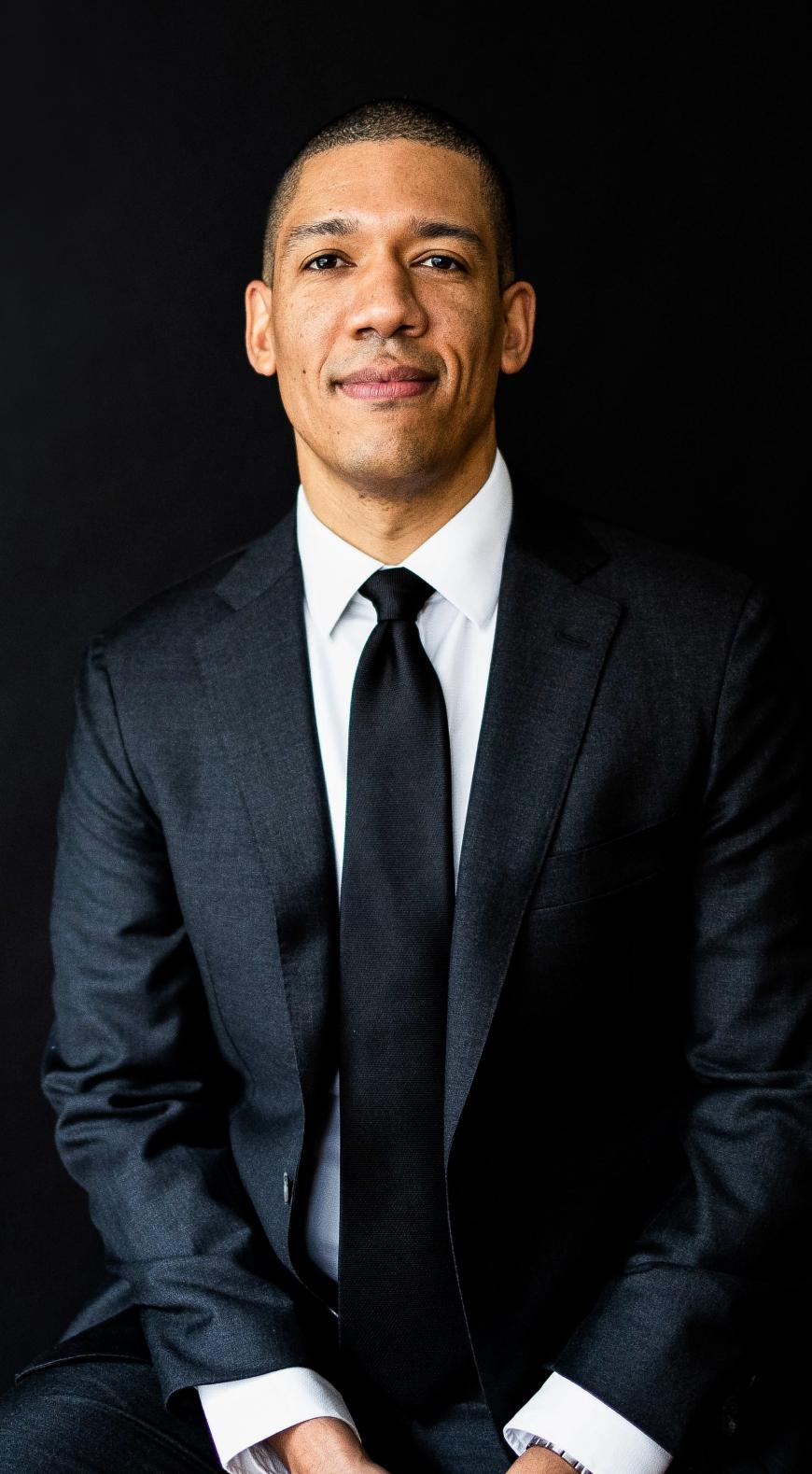
Has that been your experience?
For sure. Having now been in the Met Orchestra for 18 years, I’m able to be a much more authentic version of myself. But in my early years in that position, I definitely didn’t feel the way I feel now. That [the first months or years you spend with an ensemble] is the point where a lot of people of color don’t make it. You don’t get your tenure. Or you get tenure and decide to quit. I have Black colleagues across the country who made that choice. They didn’t feel like they belonged. And when these people quit their orchestras, they didn’t join another one. They left the industry altogether. That’s happened to some of my closest friends.
Are they talking about their treatment by colleagues?
Absolutely.
I realize there’s racism everywhere, but perhaps naively, I wouldn’t expect to find it among elite orchestral musicians.
I think the vast majority of colleagues I have experienced are good, kind people who want to be fair. They want to do the right thing. However, there is always a percentage of people who are either not concerned about fairness or are unaware of their blind spots. That’s why we call them unconscious biases. They don’t realize they’re carrying them. Sometimes those people can be very influential in a group. Sometimes the difference between getting tenure and not getting tenure is because two people in your section don’t like you.
Your New York Times letter was in response to an Anthony Tommasini column that asked if it is time to do away with blind auditions, which in his mind haven’t really achieved their goal. Do you agree?
I don’t think blind auditions are a one-size-fits-all solution for how we hire orchestral musicians. Another problem is the tendency to screen players for what a friend of mine calls “musical athleticism.” If the only thing that matters is if you can play with a beautiful sound high and low and fast and slow, then blind auditions start to finish — which most orchestras do not do — would be the gold standard. But there’s an argument that an orchestral musician should be greater than just someone who can play the orchestral excerpts well. Someone who can engage with audiences well, whether that’s the audience at Davies Symphony Hall or the audience at an elementary school. Or someone who can communicate well in various forums and be an advocate for music. There could be methods for screening for those skills as well.
Of course, playing your instrument well would be a requisite. But what other skills are required for your particular orchestra? As it’s currently constructed, the basic entry requirements for getting into the San Francisco Symphony or the Memphis Symphony or the Milwaukee Symphony or wherever are basically the same. But what’s needed in a community like Memphis, which is 60 percent Black, may be different than in a community like San Francisco.
Do you believe more diverse orchestras would draw more diverse audiences — a crucial goal at a time when so many ensembles are struggling to get people to buy tickets?
It would — as would having a more diverse repertoire. I can tell you that when the Met does Champion or Fire Shut Up in My Bones, there are a lot more Black people in the audience. This is high-quality classical music, performed by some of the world’s greatest singers — and you’re doing it in a way that is appealing to another group of people (as well as traditional operagoers). You want to give people multiple reasons to want to be in the building. You want to give people a mirror in which they can see themselves and a window in which they can see into the lives of others.
On that subject, how did you discover music as a kid?
I’m the only professional musician in my family. No one in my family even plays an instrument recreationally. When he was in junior high and early in high school, my dad played the trombone. When I was deciding to join the band and picking an instrument, he said to me, “If you want to learn the trombone, I can teach you the scale. I still remember that.” That’s the B-flat-major scale in trombone world. That was my launching point. I showed up at band class the first day knowing one thing the other students didn’t know. Perhaps that inkling of an advantage motivated me.
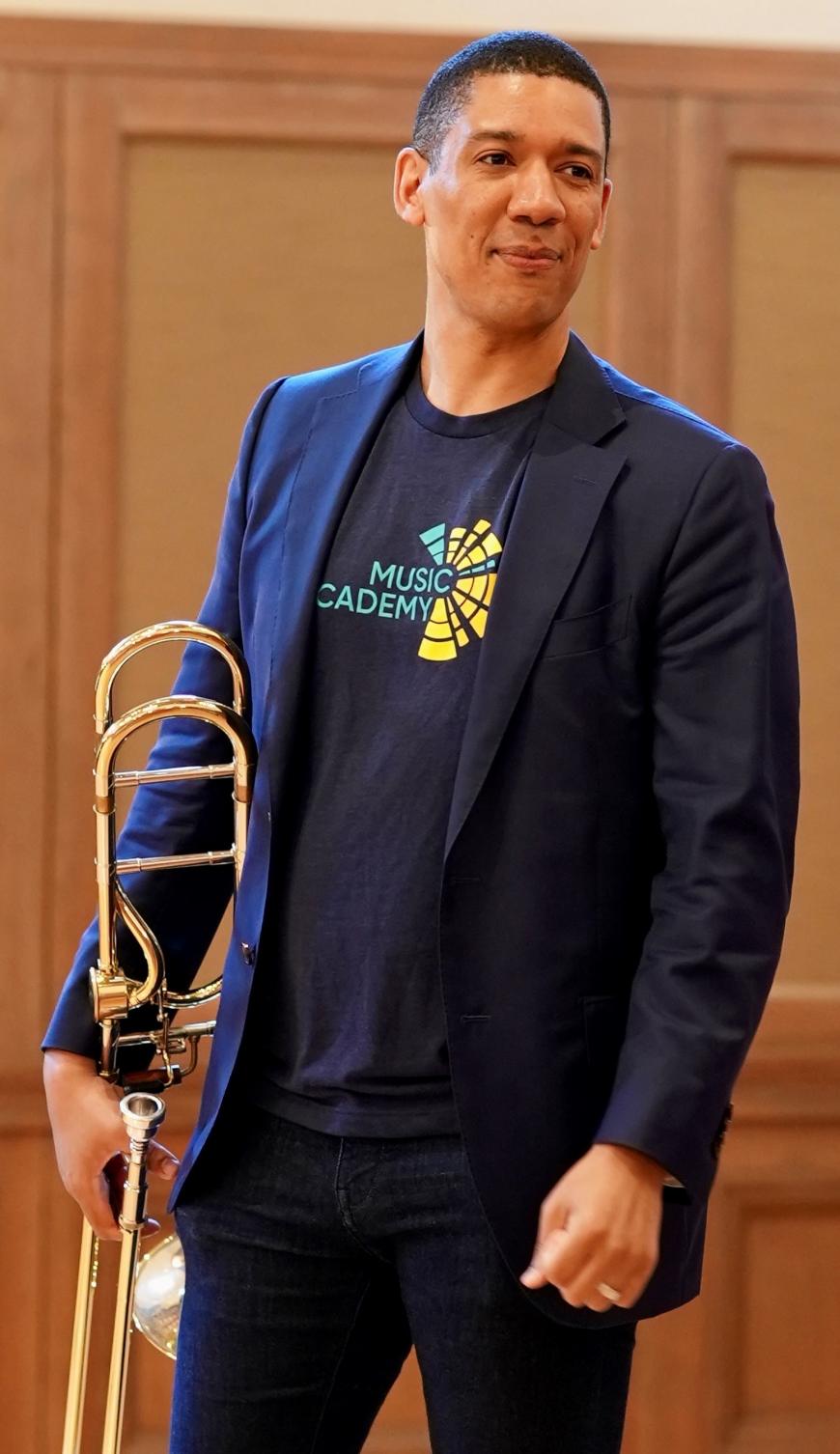
Were your parents encouraging when you decided to become a professional musician?
My parents were very encouraging of me pursuing music on a recreational level. They thought it would make me more well rounded and help with my college applications. When it transitioned to “I want to be a trombone performance major,” that created some friction in my family. My parents were very pragmatic people, for lack of a better term. For them, you go to college and [get training for a field] that pays well. They insisted I pursue a double degree in college, which I temporarily agreed to do before shifting to being a music major. But soon after graduating, I got a position at the Metropolitan Opera, and we’ve been cool ever since.
What was the internal drive that kept you focused during that period?
I just love music. I get a lot of gratification from the physical sensation of creating sound. I love to feel the vibrations go through my body. I could find a lot of happiness sitting in a room playing slow scales and arpeggios by myself. There’s something visceral about that feeling that’s really special to me.
As for deciding I wanted to make this my career, I went to my first orchestra concert when I was a junior in high school. My buddy Tim Higgins, who is now principal trombonist of the San Francisco Symphony, told me, “You should go next week because there will be big trombone solos.” So, I asked my dad, and we went.
They were doing [Gustav] Mahler’s Symphony No. 3, which has three trombone solos — the most extended trombone solos in all the repertoire. I had an aha moment where the lightbulb went off. I said, “I want to do this. I want to play in an orchestra for a living.” It was really clear to me. I was 16.
Besides playing in the Met Orchestra, you are dean and director of the preparatory division at Juilliard. I imagine Juilliard as being an extremely high-pressure environment. Is that your experience?
I honestly don’t see Juilliard that way. That’s a stereotype associated with conservatories in general. Movies like Whiplash portray a cutthroat environment where everyone is trying to get a leg up on everyone else. But my experience is that Juilliard is a warm and collegial place. The students are really supportive of one another. Both at Juilliard and here at the Music Academy, the students are really committed to their craft and really serious about improving. I’m impressed with the students here in this wonderland. You could easily go to the beach and just hang out. But they’re practicing really hard and showing up incredibly well prepared for their lessons.

What’s your approach to teaching?
For the most part, with all the technical and musical things, there is an angle through which you can communicate effectively how to improve in all those areas. Sometimes it’s a matter of finding the correct language or finding the correct motivating factor. The thing I find difficult to teach is the work ethic. For anyone who is willing to put in the time and commit in a way that’s really serious, I feel just about everything is available.
I’m a big believer that talent, in and of itself, isn’t really a thing. We tend to describe people who play really well as talented and people who play less well as less talented. I feel that’s the wrong way of putting it. They’re at different levels of their development. Or it could be for any number of reasons. But it doesn’t mean one person is innately better than the other. If I believed that, it would sap my motivation to teach.
You are part of a group called the Black Orchestral Network that, last year, came out with an open letter to American orchestras calling for action to counteract racial injustice in the industry. What kind of response have you received?
The response was incredibly good. Thousands of people amplified the letter. That was really positive. It was clear that the message resonated with a lot of people. A lot of people support that idea that change needs to happen. That’s a reason for optimism. But we have to continue to hold the field accountable to see to it that those things actually happen.



